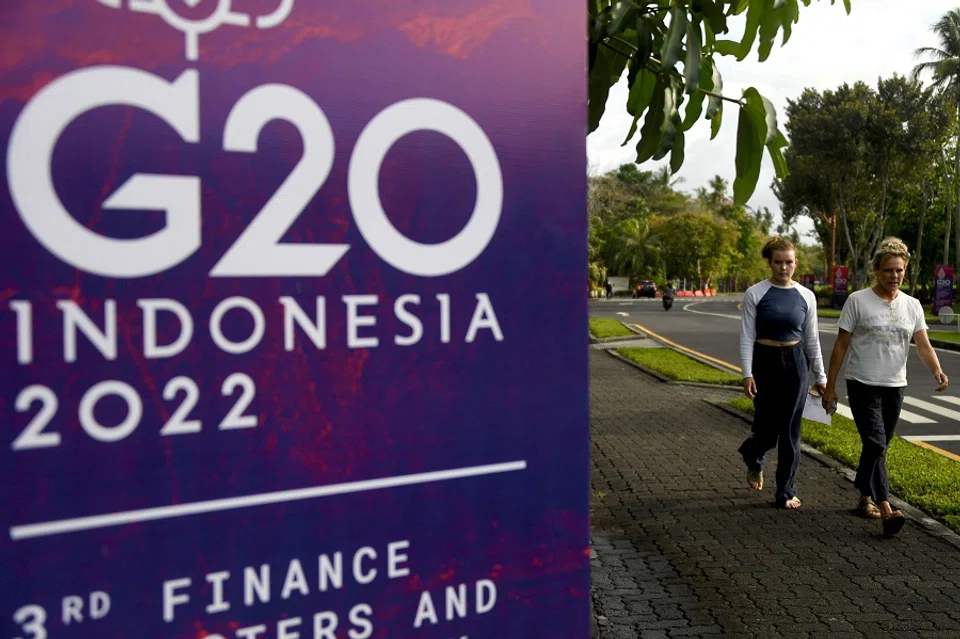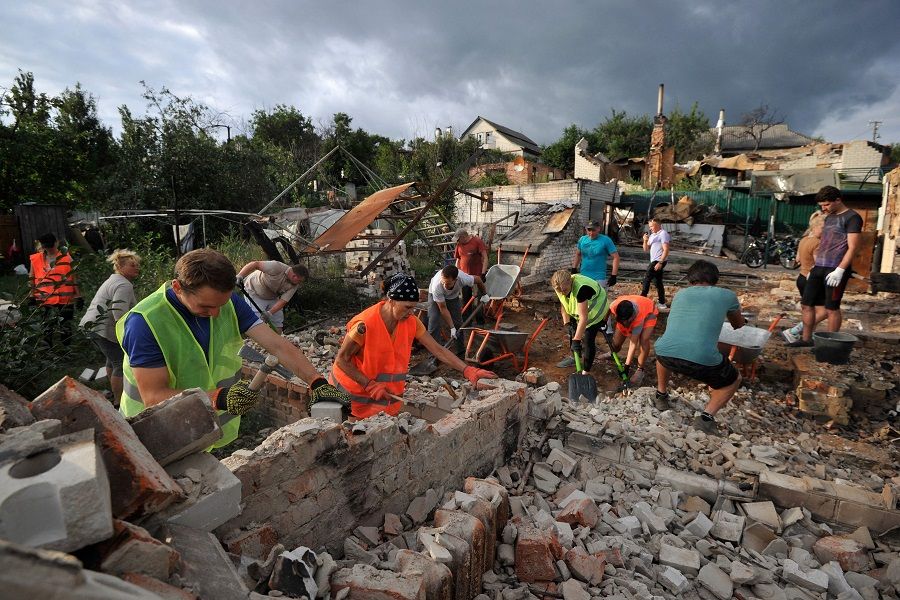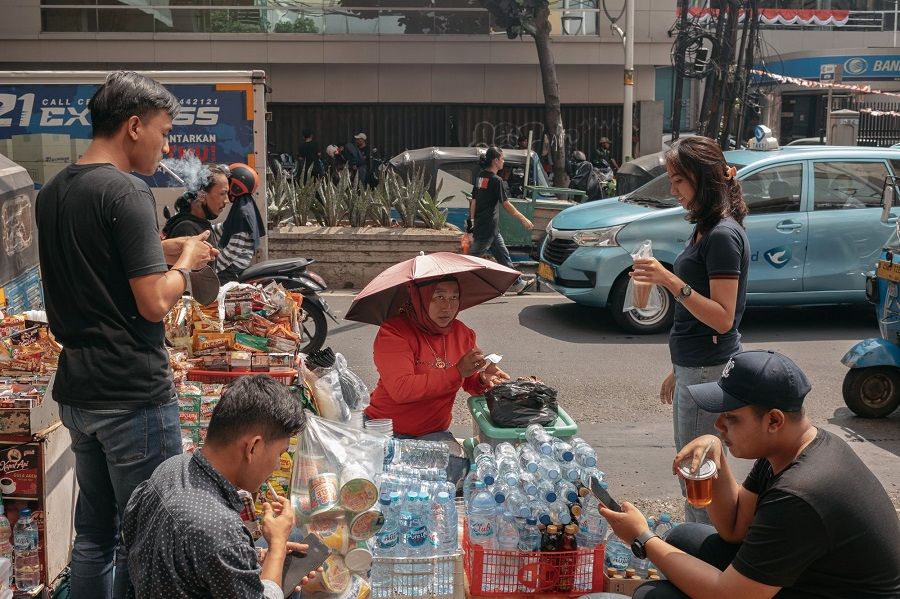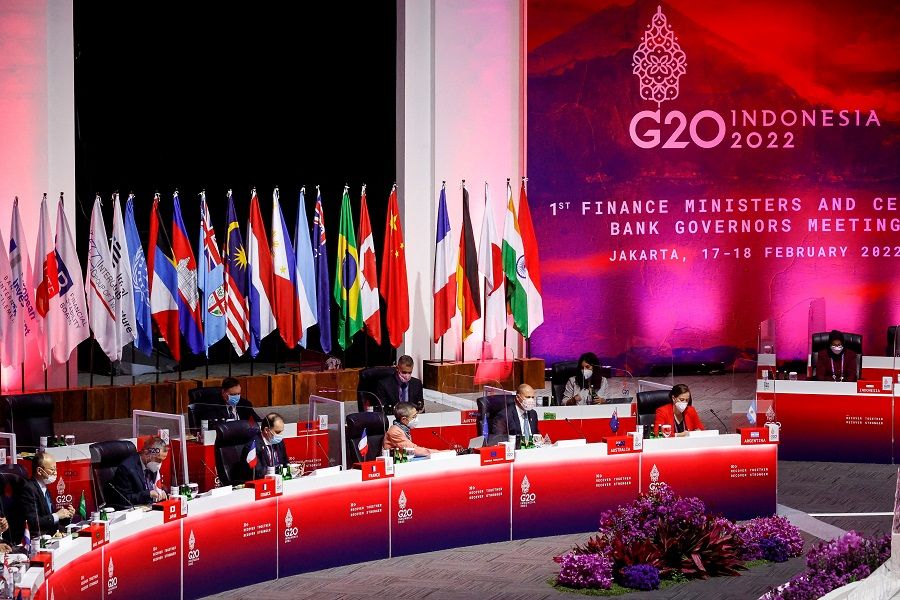Indonesia's G20 presidency: Carving out a path for developing countries' representation

Entering 2022, the global economy was moving closer to recovery from the Covid-19 pandemic. But the promising prospect of returning to normalcy changed drastically after the outbreak of war between Russia and Ukraine. Escalating geopolitical tensions have altered policy trajectories across the globe.
Before the war in Ukraine, policy discussions revolved around the "exit strategy" from the massive fiscal stimulus that was deployed during the height of the Covid-19 pandemic. Ensuring a "soft landing" without triggering overshooting inflation, resolving supply-demand mismatch, and fiscal consolidation to avoid debt distress were top priorities among developed and developing countries. Now there is talk of a slowdown of the global economy.
Slowing growth and rising inflation
In June 2022, the World Bank slashed its global growth forecast to only 2.9% in 2022 from 5.7% in 2021 - significantly lower than the 4.1% that was anticipated in January 2022. Recently, the IMF also cut its global growth forecast to 3.2% in 2022 - 0.4 percentage points downwards from the previous forecast in April 2022.
Similarly, the rising global prices of energy commodities since the second half of 2021 has intensified, and the trend has also spread to agricultural products in the wake of the war in Ukraine. For instance, US inflation jumped 9.1% year-on-year in June 2022 in a fresh four-decade high, breaching all estimates. June's consumer price index (CPI) in the UK also rose by 9.4% year-on-year, slightly above a consensus forecast, as energy and food prices continue to increase. The same rising trend of inflation with various magnitudes is observed across the globe.
... the development of economic activity and inflation data provides stronger indicators that stagflation is getting nearer on the horizon.

The combination of economic growth decline and rising inflation tensions creates a toxic mixture of stagflation. It has been observed in countries across the globe that the development of economic activity and inflation data provides stronger indicators that stagflation is getting nearer on the horizon. In an attempt to soften the blow on purchasing power, more central banks have been joining the trend of monetary tightening. However, it is rather unclear whether its consequences would deliver the intended effect, which is decelerating inflation, or rather an overkill which might bring about a recession altogether.
... in order to curb rising prices and safeguard domestic supply, some countries have turned towards trade protectionism practices, triggering a deglobalisation trend.
On the humanitarian front, even as the pandemic has put millions of lives in jeopardy, rising inflation and a disrupted supply chain have enhanced the risk of food insecurity and income loss. This situation calls for policy responses that ensure the poor and vulnerable have adequate purchasing power to afford basic needs.
Desperate times call for desperate measures. For instance, in order to curb rising prices and safeguard domestic supply, some countries have turned towards trade protectionism practices, triggering a deglobalisation trend. However, such practices might not produce the best outcomes, both domestically and internationally.
Another showcase of suboptimal policy response is the increase in fuel subsidies to fight inflation and erosion of purchasing power, which bears the potential of mistargeted subsidies and shifting away from the agenda of fighting climate change.
Resolving the current crisis may require coordination and cooperation on a supranational level.

These few examples show that the ongoing challenges might be too difficult to be addressed domestically. Resolving the current crisis may require coordination and cooperation on a supranational level.
Where the G20 comes in
Comprised of the 20 largest economies in the world and representing more than 80% of world GDP, 75% of international trade and 60% of the world population, the Group of Twenty (G20) is not only the biggest multilateral platform, but also the only platform that has the capacity to address the ongoing economic, humanitarian and geopolitical issues.
Considering its influence and power, G20 is in a strategic position to facilitate the discussion among country leaders to come up with constructive and inclusive solutions. Furthermore, the Indonesian presidency of G20 brings the significant potential of broadening the representation of developing countries. However, this is by no means an easy task.
In practice, facilitating discussions among major political leaders to reach a common agreement on current global issues is a massive challenge. There being a broad spectrum of countries within the G20, each having their own interest, Indonesia is in a delicate position to bring balance to the forum.
Indonesia has the potential to make substantial contributions to the three pillars it has marked out for its presidency, namely, global health architecture, sustainable energy transition, and digital transformation...
Indonesia's intermediary role
While most of the ongoing global problems stem from the Russia-Ukraine war, solving the root of the problem in terms of ending the war might seem utopic and expecting Indonesia's presidency of G20 to bring about such a resolution might be naive.

Nonetheless, there are several possible outcomes that can be expected from Indonesia's G20 presidency. Indonesia has the potential to make substantial contributions to the three pillars it has marked out for its presidency, namely, global health architecture, sustainable energy transition, and digital transformation, and making sure that progress in these areas are feasible and inclusively beneficial, especially for middle- and low-income countries.
The G20 presidency should balance any suboptimal consensus reached during the G7 forum. It is also essential for Indonesia to carve out the right path in the context of developing countries' representation as the next three presidencies of G20 will be held by developing countries, namely India, Brazil, and South Africa. Setting the right direction of discussion trajectory in the three major pillars above should be a legacy that the Indonesian presidency strives to achieve.
Beyond the three main issues, Indonesia should also push forward the discussion and set the right tone on several issues including improving macroeconomic resilience, strengthening global and regional supply chains, enhancement of food security, and reviving global governance.
The recent diplomacy of President Jokowi to Kyiv and Moscow, and to East Asia, including China, is a concrete demonstration of such actions taken.

Considering its characteristics, Indonesia is in a strategic position to play an intermediary role among global powers, within and outside of the G20. Being a developing Asian country with rich diversity, massive economic size, and a rather neutral geopolitical standpoint, Indonesia could live up to its potential in managing global discussions and take a meaningful step in the attempt to de-escalate global geopolitical tension.
The recent diplomacy of President Jokowi to Kyiv and Moscow, and to East Asia, including China, is a concrete demonstration of such actions taken. Most recently, President Jokowi also said that he thinks Indonesia can be a "bridge of peace" for Russia and Ukraine.
That said, the discussions at the G20 should take into account the difference in country characteristics that have been inadequately considered previously. These characteristics include fiscal capacity, socioeconomic conditions, domestic political stability, and welfare improvement for the poor and vulnerable.
Any success in taking into account these aspects in the G20 discussion progress would serve as a significant milestone and help to ease the transition towards the next presidency. This is quite a challenge as it requires more eloquent and strategic manoeuvres amidst the multifaceted interests on the G20 table.
